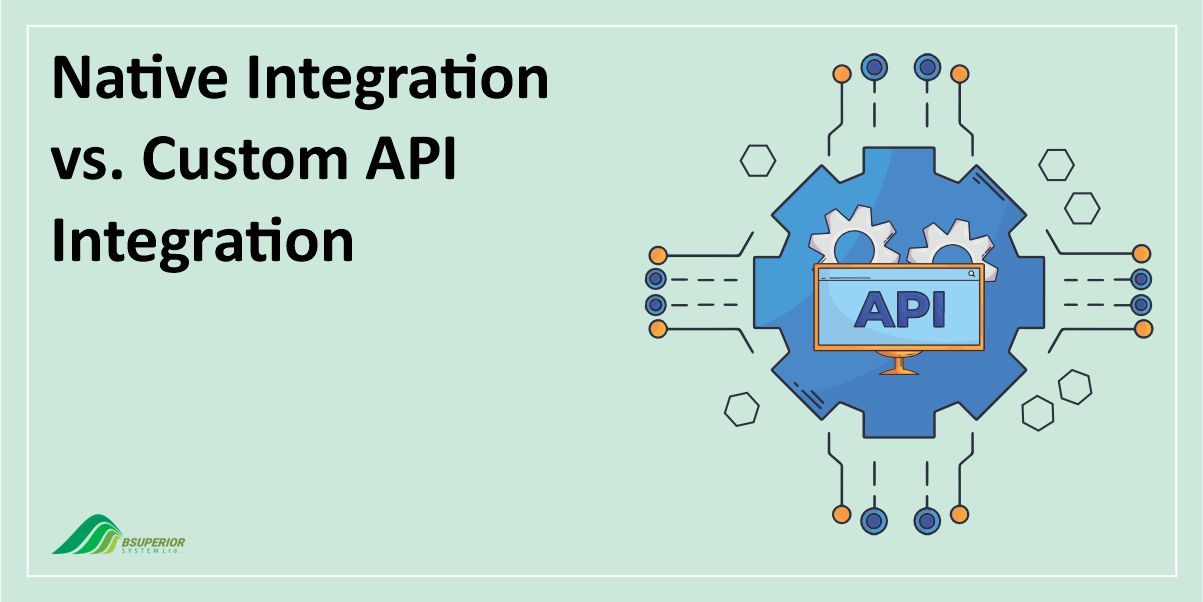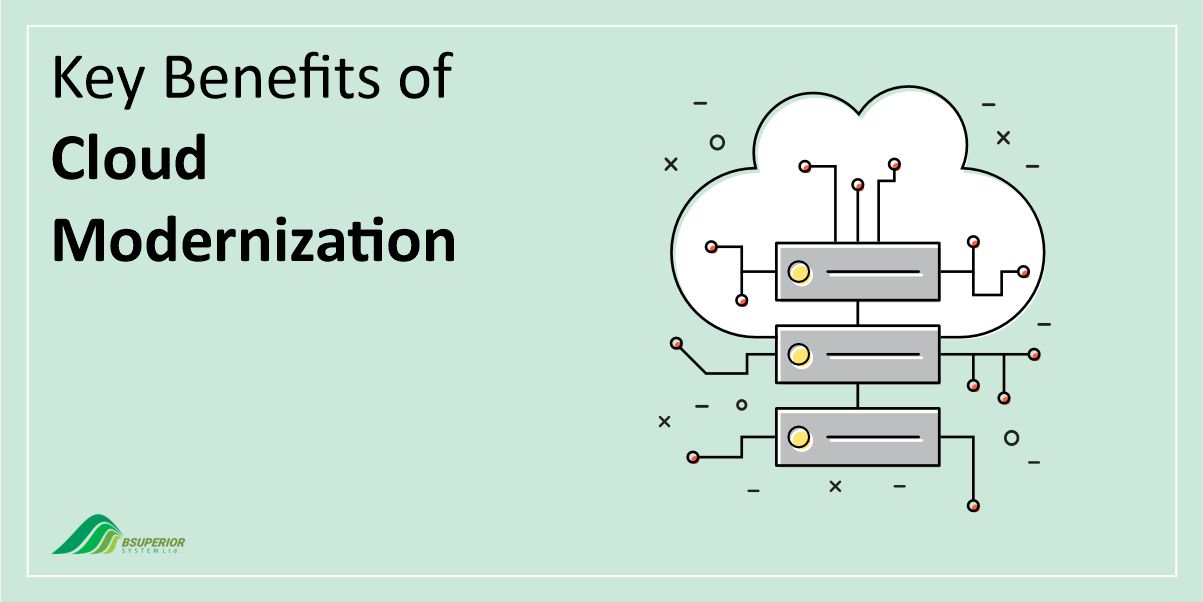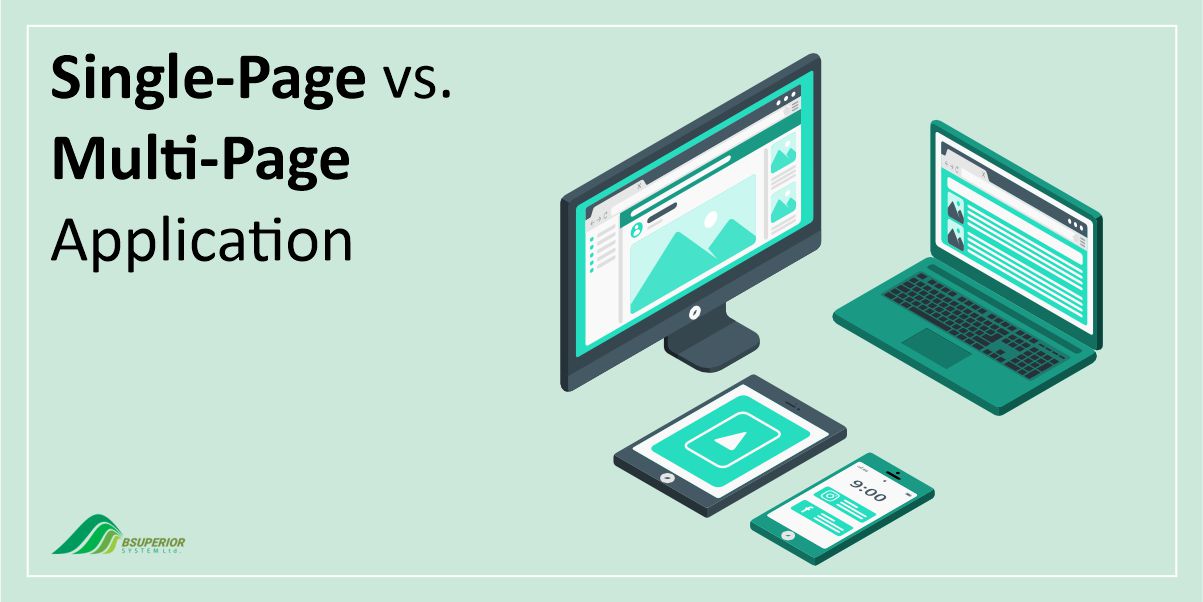Native Integration vs. Custom API Integration: Which One You Better Pick?

Table Of Content
- Understanding Native Integrations
- Native Integrations: The Benefits
- Native Integrations: The Shortcomings
- Understanding Custom API Integrations
- Custom API Integration: The Benefits
- Custom API Integrations: The Shortcomings
- Native vs. Custom API Integrations: Which One to Pick?
- How Can BSUPERIOR Help with Your Integrations?
When it comes to software integration, sooner or later you will come across an important choice. Would you rather take a Native integration approach or do you prefer a Custom API Integration model?
Regardless of your preference, this is not a simple decision as there are numerous factors to take into account. In what follows, we’re going to take a more detailed look into these two integration models and help you pick the best fit for your company.
Understanding Native Integrations
Native integration refers to the seamless connections between two software applications that are designed and built directly by the original software providers.
These integrations make direct communication and data sharing between the applications possible without the need for any custom coding or extensive development efforts.
While many integrations may be labeled as native, authentic native integrations are constructed on a managed package framework that enables data to reside directly on the platform itself. This approach minimizes any delay in data transfer and removes the necessity for bidirectional synchronization between different software.
One of the main upsides of native integrations is their simplicity and speed of deployment. They typically require minimal configuration and can be set up with just a few clicks.
This simplicity and efficiency make them an attractive option for businesses that are looking for a fast and straightforward solution to unify their technology ecosystem.
Read More: API Integration Patterns: All You Need to Know
Native Integrations: The Benefits
The suitability of various integration types varies depending on a company’s resources, technical objectives, and operational processes. Nevertheless, native integration offers a number of important benefits that will make it a preferred option for many companies.
Speedier Performance
To begin with, native integrations keep your software running smoothly. Unlike API integrations, which can experience delays in data transfer, native integrations happen entirely within the same platform. This makes your applications faster and less prone to glitches since they are practically working as one system.
More Available Support
Companies that provide native integrations are often large organizations with robust IT and development departments.
These integrations fall within the scope of the main applications, so the support teams are well-equipped to diagnose typical problems and assist users when issues arise.
Even if the integration is not a primary offering, the support staff is knowledgeable about the technology stack used in its development.
More Affordable
When a company purchases high-quality software, it is common to receive native integrations as part of the subscription or for a small fee.
This situation benefits everyone. Your team can take advantage of these integrations without spending much, and the software provider benefits because their product becomes more integral to your operations.
Better Data Privacy Compliance
Another benefit of native integrations is that they simplify adherence to data privacy regulations such as GDPR and CCPA. With a unified system, developers gain a clearer view of potential security risks and weak points.
Moreover, native integrations facilitate the centralized monitoring of security measures. This centralization is particularly beneficial when dealing with various systems and applications given that it streamlines the enforcement of security protocols and supports regulatory compliance.
Native Integrations: The Shortcomings
Despite having several important advantages, native integrations come with a few significant challenges.
Lack of Priority From the Parent Company
One of the limitations in this regard is the possibility of your support needs being sidelined by the parent platform. A smaller integration hub software company may be more invested in customer retention and, as a result, more attentive to your needs.
However, the larger parent company, despite having a more extensive IT department, may place more emphasis on issues concerning its main product rather than those related to integration tools.
Maintaining the Integrations
It is important to be aware that a significant limitation of native integrations lies not in their initial creation but in their continuous maintenance.
The time-consuming nature of this process is often due to the variability of API responses, which can sometimes produce data that is unexpectedly different from previous outputs.
This unpredictability can disrupt the integration and result in engineers revisiting and debugging the code.
Security Concerns
A further consideration of the limitations of native integrations is their vulnerability to security breaches. Integrations based on API connections or cloud-native solutions can be prime targets for cyber attacks. A compromised API can lead to vulnerabilities across connected systems and applications.
On the other hand, integrations that are part of the main platform tend to be less vulnerable. When data is centralized in fewer locations, particularly on platforms with strong cybersecurity measures, the potential points of attack can be reduced.
Read more: ERP Integration: Benefits and Everything Else You Need to Know
Understanding Custom API Integrations
While native integrations offer a convenient starting point, custom API integrations take things a step further. API integrations refer to specialized connections that extend beyond the standard capabilities provided by native integrations.
These custom API integrations are tailored to your portal and created to suit your needs. When the native integrations fall short of your organization’s unique needs, custom integrations via APIs serve as an excellent alternative.
Need help with building APIs? Check out our API Development Services Company for expert assistance.
Custom API Integration: The Benefits
Custom integrations through the use of APIs offer quite a few benefits.
Freedom in the Integration Process
Custom API integrations grant you the freedom to set your own rules, unlike native integrations which bind you to the predefined rules of their developers.
You have the freedom to tailor the interaction between systems to make sure that the integration effectively serves your company’s unique needs.
Tailored Personalization
Another crucial advantage to consider here is that custom API integrations are developed with your specific requirements in mind and thus provide you with the exact features you need while omitting unnecessary extras.
This custom-based approach ensures that the integration conforms to your business operations which will help you streamline processes and mitigate potential issues down the road.
Enhanced Customer Support
Custom API integrations facilitate comprehensive access to customer data throughout the organization. This feature allows businesses not only to enhance their customer service but also to devise innovative engagement strategies. This is crucial in an era where customers expect personalized service experiences.
Better Data Analysis
The significance of data for obtaining insights about customers and business processes cannot be ignored.
Custom integrations through APIs provide organizations with the ability to collect and scrutinize data from all facets of their business, thereby bolstering their analytical capabilities.
As a result, this leads to a deeper understanding of customer needs, product refinement, and operational efficiency.
Fostering Innovation
The last advantage to mention is that APIs are a catalyst for innovation as they allow developers to take advantage of existing features and functionalities, along with the strengths of external systems.
By making APIs available, businesses unlock the potential of a vast developer community. These developers can create new applications, features, and integrations that significantly boost the value proposition of the company’s offerings.
This will speed up the introduction of new products and more importantly provide a competitive edge in the marketplace.
Read more: What is an API Development? The Things You Should Know
Custom API Integrations: The Shortcomings
We should not forget that custom API integrations have their own set of challenges.
Third-Party Reliance
Using third-party APIs creates a dependency where your application’s effectiveness hinges on the uptime and dependability of the third-party’s service.
This means that any downtime or issues with the API can negatively impact your application’s functionality and the overall user experience.
Security Risks
Incorporating third-party APIs can lead to security concerns, particularly when dealing with the transmission of sensitive information or if the API itself is prone to vulnerabilities.
It’s therefore necessary to rigorously assess the API provider’s security protocols and, if needed, put in place extra safeguards to ensure data protection.
Performance Issues
The integration of third-party APIs can lead to performance issues. This mainly depends on several factors such as network delay and the speed at which the API provider’s servers operate.
No matter what the causes are, your application might experience slowdowns and become less responsive.
Native vs. Custom API Integrations: Which One to Pick?
Generally speaking, Selecting between native and custom API integrations hinges on your specific business needs, the complexity of your integration requirements, and whether suitable native integrations exist.
Pick Native Integration:
If your software applications come with native integrations that cater to essential use cases and align with your business workflows, opting for native integrations will sound like a cost-effective and streamlined choice. They are designed to resolve common integration challenges without extensive custom coding.
Pick API Integration:
On the other hand, if your integration demands are complex or the built-in integration options of your software are limited, turning to custom API integrations may be more beneficial.
This method allows for the creation of tailored solutions that precisely fit your requirements, albeit with greater development and maintenance expenses.
Pick Both:
At times, a combination of both native and custom API integrations might offer the best of both worlds, employing native integrations for standard needs while customizing for unique or advanced requirements.
How Can BSUPERIOR Help with Your Integrations?
If you are struggling to connect your various software tools, consider teaming up with BSUPERIOR. We offer hundreds of pre-built integrations across essential categories like CRM, file storage, ticketing, accounting, and more – all designed to streamline your workflows.

As a leading software development company, we specialize in creating custom, cutting-edge, and reliable API integrations to meet your specific needs.
We provide everything you need to get started, including common data models, tools to access and sync custom data, robust management features, and top-tier security controls. To learn more about our integration services, reach out to us.
We value your input and believe this content may enhance our services. However, it's under review. If you see room for improvement, please use the "Report an issue" button below. Your feedback helps us excel.
Contact us today at –– and speak with our specialist.




